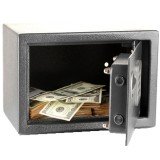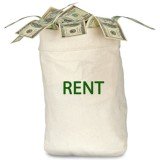When to Collect Security Deposit from Tenants
Should you collect security deposit from tenants? Find out the answer here with our guide on collecting security deposit.
"Should I collect security deposit from tenants?" - While there are differing opinions for this question, the answer is very straightforward for us. Yes, you should always ask your tenant for a security deposit. The only question should be how much security deposit to collect (which we shall answer in the next page of this guide).
The security deposit is a landlord's most accessible insurance against rental losses. It gives tenants a big incentive to pay the rent on time and follow the lease rules. Without a deposit, even excellent tenants may falter when it comes to rent payments and property maintenance.
Some landlords don't ask for security deposits because they want to attract more tenant applicants. While having a larger pool of potential tenants is a good thing, what a landlord really needs is one well-qualified tenant... and not a whole bunch of shady ones.
If you're lacking tenant applicants, it's probably because your asking rent is too high. In that case, we suggest that you lower the rent instead of giving up security deposits - Click here to learn how much rent you should charge for a property.
The only exception we may consider is when renting to close friends and family. If putting a roof over their heads comes first and they can't afford a deposit, then perhaps you can forgo your rights to ask for a deposit.
When to collect security deposit from tenant: You should always collect the deposit before the lease begins. This can be either during the signing of the lease agreement or when handing over the keys to the tenant.
Some landlord make the mistake of collecting security deposit with the first rent payment or by installments. It's worrying when the tenant has problems forking out the deposit upfront. It may be an early warning that the tenant overspends or doesn't earn enough to pay for the rent.
Once you have collected the security deposit, it's good practice to issue a security deposit receipt to your tenant. Make a copy of this receipt and file it under your lease documents.
- Security Deposit Definition - What is a Security Deposit?
- When to Collect Security Deposit from Tenants
- Security Deposit Receipt Form
- How Much Security Deposit Should I Charge?
- When and How to Make Security Deposit Deductions
- Itemized Security Deposit Deduction Form
- U.S. Security Deposit Laws - Security Deposit Amount and Interest
- U.S. Security Deposit Laws - Return of Security Deposit



